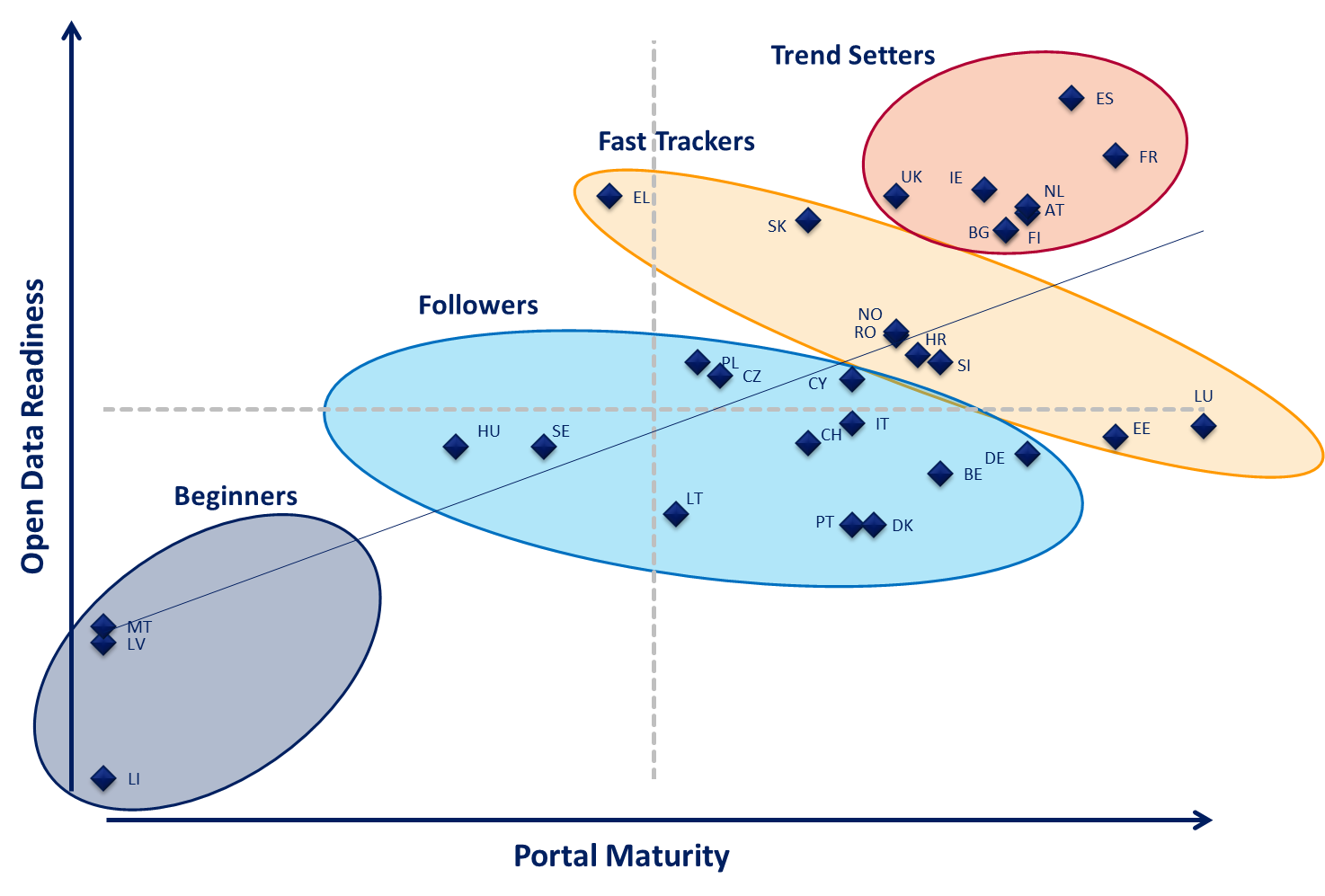Have European countries developed their Open Data Maturity since 2015?
Can we see an acceleration in the development of Open Data Maturity in the 28 European Union countries plus Liechtenstein, Norway and Switzerland (EU28+)? A second assessment in a series of annual studies highlighting the most important findings of the Open Data Maturity Assessment has just been published.
Open Data Maturity is measured by taking into account Open Data Readiness and Portal Maturity. These indicators cover both the level of development of further national activities promoting Open Data as well as the level of development of national portal features
In 2016, on average, with 28.6% increase in comparison to 2015, the EU28+ countries completed 56.6% of their Open Data journey. Countries having an Open Data Policy in place increased from 23 countries in 2015 to 28 countries in 2016.
Most countries have increased their use of Open Data as they have launched activities to promote their Open Data policies and portals, as well as developed additional means to monitor their users. In addition, in comparison to 2015, there is a clear increase in demonstrating the political, social and economic impact of Open Data, although scores differ largely between countries. Furthermore, results show that portal maturity is not simply linked to more countries having a portal but countries developing more systematic impact assessment and evaluation studies of the benefits of Open Data.
The Portal Maturity indicator increased by 22.6 percentage points from 41.7% to 64.3% thanks to more countries having brought more advanced features to their portal. On average, EU28+ countries have increased their development on all three sub-indicators in 2016 when compared to 2015, namely 61.3% on usability (11.0% points increase), 60.1% on re-usability (36.4% points increase) and 79.4% on spread of data across domains (38.0% points increase). A new country launched its Portal, leading to a total of 28 national Open Data portals across Europe.
Based on these results, to assess the overall Open Data Maturity, the EU28+ are grouped into different maturity levels: Beginners, Followers, Fast Trackers and Trend Setters.
Beginners: are in the early stages of their Open Data journey, both in terms of having an Open Data policy present as well as portal features.
Followers: have successfully developed a basic Open Data policy and have brought in more advanced features on their portal. Limitations still exist in terms of data release.
Fast Trackers: have significantly accelerated their Open Data journey, having either a policy or a portal that is substantially developed, however they still face a small number of shortcomings.
Leaders - Trend Setters: have implemented an advanced Open Data policy with extensive portal features and national coordination mechanisms across domains.

EU28+ Open Data Maturity clusters
As the picture above shows, most countries are in the 'Fast Trackers' and 'Trend Setters' group in 2016, while in 2015 most countries were still considered 'Followers'. To achieve further maturity, a number of barriers remains.
The report offers an overview of where the EU28+ countries stand in their Open Data developments by the end of summer 2016, as well has how they have progressed compared to 2015. The report also offers an assessment of the barriers faced as well as a series of recommendations.
